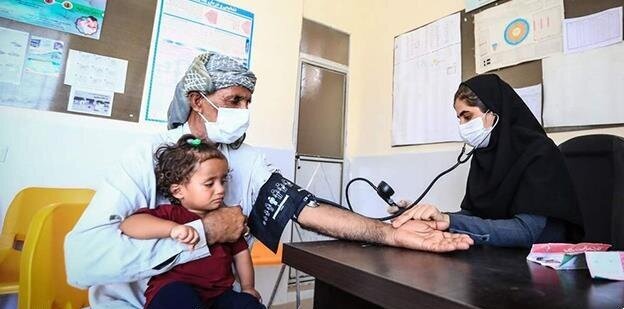Family physician program kicks off

TEHRAN – Health Minister Bahram Einollahi officially announced that the family physician program started on Friday in 57 cities across the country.
The minister pointed out that the program aims to strengthen preventive measures and protect people's health with the participation of capable groups under the supervision of the country's health and treatment network, ISNA reported.
By actively monitoring the target population, the expert teams follow up on their health regularly and try to prevent problems caused by diseases in people by informing them about their health status.
If the healthcare provider diagnoses the disease, the sick person who needs care will be referred to the family physician to be examined and treated for free as the level one service.
Also, if the patient needs specialized services, the physician will refer the person to a specialist doctor as the level two service.
At this stage, the specialist doctor gathers information related to the patient's health status and the treatment process in an electronic file.
The third level of services is related to people who need to be admitted and receive medical services in the hospital, which is done by transferring the patient's electronic file to the hospital.
The family physician program, being implemented in cities with less than 20,000 people, has envisaged building 3,900 medical centers across the country.
“We all seek to strengthen and streamline health and treatment networks to increase resilience, and the family physician program provides an opportunity to realize the goal, IRNA quoted deputy health minister Behrouz Rahimi as saying.
The national development plan has emphasized the need for the implementation of the family physician program, and about 6 to 8 percent of the gross national product is allocated to the health sector, he added.
Family medicine is a type of medicine in which family physicians are in direct contact with families. These doctors are responsible for primary health care and are physicians who are always present.
They are usually in contact with families in case of illness or accidents.
Due to accurate knowledge of the people covered by them and familiarity with their medical history, these doctors can find out their illnesses sooner and treat them continuously in case of illness.
People who have a family doctor have a trusted and knowledgeable counselor for their medical problems.
Family physicians are also always available and present, caring for the target population.
Periodic examinations and monitoring of people's health status, easy and round-the-clock access to basic services and primary care, and preventing frequent visits to doctors are the characteristics of a family physician.
The program started in 2005, targeting almost 25 million citizens residing in rural areas.
Based on the program, a physician and a midwife offer services in rural areas, every 3,300 villagers have a physician and there is a midwife per 5,200 people in villages.
The plan helped reduce treatment costs and public spending on healthcare services, as the physician is aware of the person’s health background, it prevents many unnecessary diagnostic processes, like scans.
The implementation of the family physician program in urban areas also began in June 2012 in Fars and Mazandaran provinces. Reducing out-of-pocket payments has been an important effect and benefit of the urban family physician program.
Some 800 clinics and medical university centers are providing services in provinces.
Some 12 services are provided in the villages, including doctor visits, pharmaceuticals, paraclinical, laboratories, radiology, drug supplements, management of technical programs, and construction.
Currently, more than 7,000 physicians, 5,600 midwives, and over 2,000 dentists are providing services in 4,112 rural centers.
The family physician program has positive achievements for improving the health of society, and with timely diagnosis by doctors, the staggering costs of treatment can be reduced.
All the necessary medical controls of people are done through these doctors, and if there is a need to receive higher levels of services, the necessary action will be taken to refer to a specialist doctor who is in this plan.
MG
